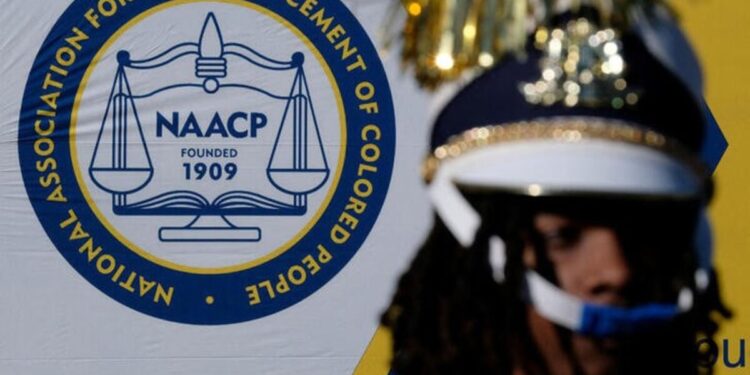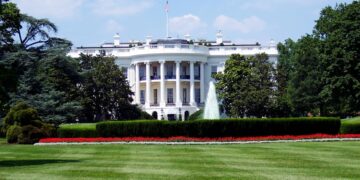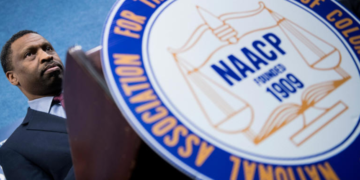April 7, 2025 Story by: Editor
Ahead of New Jersey’s June 10 primary and the November 5 general election, the Princeton chapter of the NAACP hosted a forum featuring several gubernatorial hopefuls. The event gave voters a closer look at the candidates’ priorities, including housing, education, clean energy, and concerns over federal policies under former President Donald Trump.
Seven candidates took part in the forum: Stephen Zielinski, CEO of Clean Energy Advisor 4 U and an independent Green Party candidate; Democratic Reps. Josh Gottheimer (NJ-5) and Mikie Sherrill (NJ-11); former New Jersey Senate President Steve Sweeney; New Jersey Education Association (NJEA) President and former Montclair Mayor Sean Spiller; Newark Mayor Ras Baraka; and Jersey City Mayor Steve Fulop.
Notably absent were Republican candidates, a point that surprised some attendees. “I was really surprised that they invited GOP candidates, and they didn’t show up,” said Isabella Rayes, an audience member from South Jersey.
Moderated by ABC7 journalist Anthony Johnson, the forum featured largely unified stances among the candidates, with minimal disagreement. The panelists discussed Trump’s recent executive actions and their implications for New Jersey. Fulop described them as indicative of a broader problem: “a lack of progress that we’re seeing in the federal administration in Washington.”
Rep. Mikie Sherrill emphasized the significance of the 2025 election in light of Trump’s near-win in New Jersey during the 2024 presidential race. “That’s what makes this race in 2025 so incredibly important, so we can chart a different course here than what we see coming from Washington,” she said.
Ian Mann, a freshman from Chicago who registered to vote in New Jersey, attended the event and praised its structure. “I was happy to see the pretty wide range of questions, especially on voter rights,” said Mann, a member of the College Democrats. He added that the event was “pretty well attended.”
Addressing Housing Affordability
The candidates offered various approaches to tackle New Jersey’s housing crisis. With average rent in the state reaching $2,500—over 20% above the national average of $2,075—rent control and tax relief were key topics.
Rep. Josh Gottheimer presented his tax relief plan, saying it “gives a property tax cut of nearly 15 percent across the board,” and noted it could benefit around three million families.
Mayor Ras Baraka supported rent control as a temporary measure to stabilize the housing market. “Every single property in the state of New Jersey has to be stabilized,” he stated.
Sherrill, however, questioned the long-term success of rent control policies and turned the focus toward expanding housing availability. “We’re about 200,000 houses short of where we need to be,” she explained. “[I’ve] come up with a plan so we can push money into remediating and repurposing commercial properties.” Her proposal would support conversions that serve individuals earning 60%, 80%, and 100% of the area median income.
Education and Redlining Legacy
New Jersey’s legacy of redlining and its impact on school segregation was another critical point. The state has 9.3 million residents divided among 593 school districts, often mirroring housing segregation patterns.
“Our state is the sixth-worst segregated school system in the nation,” said Steve Sweeney.
Candidates affirmed their commitment to educational equity and funding. Fulop proposed amending New Jersey’s Constitution to strengthen the Department of Education’s legal standing. “The Department of Education is not codified as it should be in the state constitution,” he said.
Sean Spiller, NJEA president and a former science teacher, also underscored the importance of securing adequate funding for public education.
Healthcare and Environmental Policy
With per-person healthcare costs 15% higher than the national average, the candidates voiced the need for affordable care and broader Medicare access. Zielinski, who has a personal history of battling cancer, outlined his “Medicare for All” proposal and called for a more sustainable agriculture model.
“We are called the Garden State, but we spray more pesticides and herbicides on our crops than any other state,” Zielinski said. “I want to make New Jersey the first fully organic, regenerative state in the nation.”
On clean energy, Governor Phil Murphy has set a target for the state to reach 100% clean energy by 2035. Zielinski, however, suggested a more realistic timeline might be 2045. Baraka emphasized expanding solar energy initiatives in urban areas. “I think we need an objective to meet,” he said. “But I also think we should continue to pursue solar energy. In Newark and Paterson, we’ve already gotten federal grants to begin to expand solar in our cities.”
Voting Rights and Youth Participation
The panelists also addressed youth civic engagement. When asked by Princeton NAACP chapter president Chris-Tina Middlebrooks ’27 whether they support lowering the voting age to 16 for school board elections, all candidates voiced support. Baraka noted that this policy is already in effect in Newark.
Final Thoughts
As the event closed, the candidates reaffirmed their priorities—affordable living, equitable education, clean energy, and healthcare reform. Fulop summed up the stakes in this election: “The country is at a crossroads, but the state is at a crossroads too.”Sweeney did not participate in the closing remarks.
Source: The Daily Princetonian
















